|
I'm going to tell this story only once, for posterity, perhaps, or maybe just because it's so bizarre that I'll want to have this record in a year or 10 years or 20, when I won't remember the fine details anymore.
Soon—very, very soon—my 10th novel will be out in the world, available in a variety of formats through just about any retailer that sells books. For the longest time—and that's part of the story, really, the loooong time—my assumption was that it would be called Dreaming Northward and would be released by the publisher behind my previous book, And It Will Be a Beautiful Life. We had a good relationship, this publisher and I, and I expected our association to go on and on, to the end of my career. But it didn't go that way. On March 11, the day before Dreaming Northward was set for a fractured release, with the e-book going out first and the hardcover and audiobook supposedly to follow at some ill-defined point, I asked the publisher to cancel the book and immediately revert all rights to me. (That request was granted, for which I am grateful.) I will not engage in a blow-by-blow description of all the ways I believe my trust and faith were compromised. And I have no desire to harm this publisher; indeed, despite it all, I have great affection for the guy running the operation and would even consider a return if certain factors that beleaguered this book were dealt with and overcome. Obviously, the publisher might not be interested in a reunion, given the events of the past week. I'm just being clear about where I am on this. I'm not mad. I'm not even hurt, not really. I'm just sad and disappointed over the outcome but also resolute that it had to happen. Dreaming Northward is gone. Northward Dreams lives.
So why did I do it? It's not like publishing contracts are easy to get. It's not like I'm a well enough known quantity that I can act like a spoiled child and get away with it (or even foment the impression that I'm a spoiled child). It's not like I have this notion that independent publishing is a dream trip. I've taken it, and it's not. It's a slog. It's exhausting. It's an endeavor undertaken with the odds ever against you.
So first, let me say this: I'm a lot of things, but I'm not a spoiled child. Second, I've been around enough publishing blocks—self-publishing, small publishing, big publishing with powerhouse marketing and backed by big-time agencies, etc.—to know that almost everything is a crapshoot for almost everybody. In this case, the promises made to me about how my book would be positioned and the marketing muscle that would be put behind it were, in retrospect, dependent on a round of funding my publisher kept promising was imminent, month after month after month. After this book slid from its original publication date in June 2023 all the way to the doorstep of last fall, I asked for a Spring 2024 date, thinking that might provide the necessary buffer for the funding to come through and for the marketing pieces to be put in play. Many, many times, I was told the funding was just a signature or a courier away from being realized. Month after month, it didn't show up. In late January, I asked if the March 12 release date was going to hold. Yes, I was told. But in the end, that cratered, too. The e-book was definitely going to come out, but the hardcover would have to be delayed. That was the eventual word. How long would the delay be? No one could say. I wasn't comfortable, but I was willing to go along and have faith. We were so close. Then came March 11 and word of another funding delay, and that ended my faith. I couldn't trust that the hardcover edition would ever come out. The more I considered it, the more I feared that the e-book would get launched, nothing else would come up behind, the whole thing would eventually crash, and I would have to pick up a barely breathing book and try to resuscitate it on the fly. It was just a bizarre episode. Not two days before I asked for a reversion, I stood in front of 50 people at the Billings Public Library, talked about And It Will Be a Beautiful Life (the most recent selection for the One Book Billings community reading program), and premiered a video about Dreaming Northward. (The video has been edited in light of recent events and can be seen below.)
I had every expectation that my book release, flawed as it might have been, would be realized. Then Monday dawned, and with it came another funding delay and my publisher's declaration that he was leaving his post for a couple of weeks amid this latest setback. He said he had to shore up his affairs in light of the situation. That was the final blow to my trust.
I asked for my book back. I made arrangements to publish it myself, through my own boutique house. In a frenzied 24-hour period, I conjured a new title, designed a new jacket, got hardcover files together and uploaded, got the e-book file to my designer, revamped this website, reworked marketing materials (such as Facebook headers and event posters), contacted booksellers and librarians who have already booked me, and, somewhere in there, bagged a few hours of sleep. Just last night, I approved the hardcover files with my printer/distributor and officially set a publication date: March 19, 2024. As I said on Facebook: I lost a week. I gained my whole book. It's not remotely what I anticipated or wanted. But it's my project now, and I'm determined to push it as far as it will go. I'll have to do some fundraising. I'll have to come up with some clever and creative marketing approaches. I'll have to look for people to say yes. Bring it on.
So the e-book comes out first. What's the big deal?
Look, I love e-books. That's how thousands and thousands of readers have been exposed to my work. But my passion lies in supporting independent bookstores, and this was always going to be a bookstore book. There were grand plans—personal letters to booksellers from my publisher and me, flashy campaigns through Bookshop.org, maybe a tour. All dependent on funding, of course. And it wasn't so much that the e-book would go first that bothered me as the fact that I no longer believed the hardcover would appear at all, given the dead promises along the way. There was no way to be OK with that. My faith was expended. That doesn't mean I wish bad things for my old publisher now that my book is out of the mix there. On the contrary, I hope I'm extraordinarily wrong about my suspicion of how that situation will finally play out. I hope he calls me in a few months and says, "You should have waited, buddy boy," and sends me videos of his lighting cigars with hundred-dollar bills. I'd be thrilled for him because he's a good man, and he was hands down the best editorial partner I've ever had. Publishing is hard work. It's even harder on a shoestring budget (as I well know and am about to experience again). I don't hold my publisher's inability to do right by this book against him. He was trying. Hard. But it wasn't happening, and in the face of that reality, my loyalty had to be to my work. In short, even if my publisher's highest ambitions come to fruition, I made the right call, given the track record. At the moment I had to make a decision, I made what I consider to be the brave one. I chose my work. I chose my sense of integrity. "If it's not hell yes, it's no" is a great clarifier in matters of choice. Sticking to that rubric, even when the answers aren't easy and even when the wish is for a different outcome, can keep one from committing reservedly to something that requires one's whole heart. I was no longer at "hell yes." Therefore, it had to be "no."
0 Comments
Here's something new: Really excited to team up with my friends at NOVA Center for the Performing Arts in Billings to present a four-session playwrighting workshop on building characters for stage productions.
We're going to get into the nitty-gritty of constructing compelling characters, putting them into play with and against each other, imbuing them with desire, rolling obstacles at them, and setting the stage—get it?—for moving them through an entire stage piece. It's four Tuesday nights, from April 30 to May 21. Want to join us? Register here! 2/19/2024 2 Comments Like Planes on the RunwayI suppose this could be a Saturday Morning Craft Talk, except it's not Saturday morning* and it's not particularly crafty. So scratch that. No. No, it couldn't. It does, however, speak to an aspect of the writing life, one that varies wildly from writer to writer, if my conversations with colleagues and contemporaries are any guide. What does one do with the ideas when they're not actively being worked on? It's a good question, one with a slapdash answer for me. I'd love to be a capital-letter Artiste, with a leather-bound notebook that never leaves my side, with stacks of brimming journals, with a catalog of every thought I've ever had and a handwritten account of every beauty I've ever witnessed. Alas. I'm just a guy with a brain, such as it is. My ideas—what I've thought of doing, what I'd like to do, what I'm considering, what I've started and not finished, etc.—are all in there, in some stage of marination. It's no doubt a terribly inefficient system, but I'm not complaining. I wrote my first novel in 2008, a breakthrough that came after years of wanting to and not really knowing how. Since then, I've not lacked ideas; indeed, I often describe my notions as being backed up like planes on the runway. But an archivist, I am not. Nor an inventory specialist. Nor a tour guide. Whatever I will or might do is up here—*taps head with index finger*—and I'm the guy with the key. I'll take the key, and the ideas, with me when I go. And that will be that. I've written before about the linear way in which I work—start at the beginning, then write straight through until the end, if I can get there. (I've also written before about how that linearity is subject to the needs of revision, when I'll happily move things around, delete things altogether, or augment the bits that aren't quite cooked.) This, too, is a terribly inefficient system, in that my early days of writing fiction were marked by a sense of loss and bewilderment when a manuscript just didn't go. I'd stash whatever I'd managed to do on a hard drive somewhere, nurse my wounds, shake off the disappointment, then try again with another idea. Fortunately, a new one would be at the ready. Planes and runways and all that. Those half-baked attempts, tucked away in their little folders, were dead things I couldn't bring myself to bury, even though I knew I wouldn't resuscitate them. A few things got salvaged for other purposes--Somebody Has to Lose, at 14,000 words my longest short story, is one such reclamation. But mostly, they take up computer memory and lie dead and crumbling. This used to bother me a lot, just from the standpoint of industry: All that work for nothing. All those words expended and nothing tangible to hold. Boy, was I wrong. 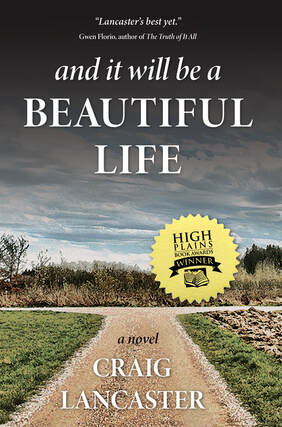 For one thing—and apologies for such a hoary cliche—there's a lesson in every failure, and not every failure is what it seems. This would have come as quite the surprise to the me of 15 years ago, who upon breaking through and at last writing a novel thought he had figured everything out. I didn't know anything. If possible, I know even less today than I knew then. Or I simply know different, better things. For instance... I've learned to wait on it. The manuscript that became And It Will Be a Beautiful Life came out slowly amid several stops and starts, and over the course of a few years. I started it in Montana, pecked away at it in Maine, and found my way through, at last, upon returning to heart earth. It wasn't entirely a function of geography, though I'm convinced that had much to do with it. I simply had the patience to wait for the memories and the imagination to steep properly. That's age. That's experience. That's trust. That's love. A while back, an artist friend introduced me to a well-known author with this: "Craig is a book-a-year guy." True once, but not so much anymore. As a less experienced novelist, I wouldn't have trusted myself to wait for the right idea to emerge in its own time. I wanted, needed, to write the next book, and quickly, if only to prove to myself that I still could. Today, I have no such worries. I know I can do it. I also know the idea I should be working on will let me know when it's ready. Giving it time and space to bloom is granting myself grace in the bargain. I'm increasing the likelihood that I'll find my way through because I'm letting the thing come to me instead of stampeding it. So, about the planes and the runway...
My next novel is just a couple of weeks from being released, the idea having germinated and taken root and blossomed nicely. The one likely to be next is written and ready for the publishing gamut, and that took me the better part of a decade, start to finish. After that? Planes on the runway, baby. I have three manuscripts in various stages of development. I suspect, but don't know, that all will find their way to the finish line. (Big disclaimer: If I have enough time. I've reached a time of life when I worry less about the ideas and more about whether I'll be around to snag all of them.) I'm enchanted with all three stories, but it's not time to finish any of them yet. Soon. Eventually. I trust the process, if not the clock. At long last, I trust the process. *--It's Monday afternoon. Thanks for the long weekend, presidents. 1/7/2024 3 Comments Sunday Morning Craft Talk*
*—if you'll indulge me.
Let's talk about sentimentality. The hook for this is simple enough; just yesterday, I posted something old/new at The Short Story Project: a 2011 story of mine called Comfort and Joy, which appears in my collection The Art of Departure. In the blurb that accompanies the post, I described the story as "unabashedly sentimental," which it is, then I proceeded to be bothered by that description for the next few hours, until I sat down to write this.
Why was I bothered? Perhaps because sentimentality is not highly regarded as a quality of serious fiction. While I'm fairly solid in my commitment to not caring terribly much what someone thinks of me personally—within limits, of course, my being human and all—I do get a bit crinkled when my work isn't taken seriously. See again: being human and all. Let me be clear here: I'm not holding out Comfort and Joy as some superior work of art. It's not. I haven't read it in years, but I know where it fell in the course of my fiction-writing career (early), and I'm certain that if I looked at it again, I would see much I wanted to do differently were I given another shot at it. But for better and worse—tilted heavily toward better—there are precious few do-overs in publishing. Mostly, you do it and live with it. I can live with Comfort and Joy. Its primary strength is this, more than a decade after it was written: It is precisely what I wanted it to be. I am taken with Capra-esque cinema, and I set out to write a Christmas story that captured a similar feel: an isolated old man with a compelling but obscure backstory, a little boy burdened by loss, a mother at loose ends, and the unlikelihood of their forging connections with each other. Happy ending? God, yes. Essential. Like George Bailey being rescued by the people whose lives he made better. Like Clarence getting his wings. Comfort and Joy hit every note I wished to play. Can you occasionally hear my fingers on the strings? Quite probably. But that's a limitation of the craftsman, not a failure of the story. One of my all-time favorite quotes is this one from Roger Ebert: "It's not what a movie is about, it's how it is about it." So it is with any artistic endeavor, I believe. Did you, the artist, do what you set out to do with the work? Yes? Congratulations! You've found success. What other people think you ought to have done is beside the point. Let them write their own stories if they feel so strongly about it.
My intent here is not to launch a spirited defense of my own work but to pose an essential question: If art is about the human condition—its variables, its beauty, its ugliness, and all the imaginable in-betweens—how can sentimentality be relegated to the outside of that? I'm not talking about the glorification of treacle or granting myself free rein to load up stories with so much sugar that readers' teeth fall out. I'm talking about acknowledging a human yearning for sentiment, a human response to what is stirred up in its wake, the emotional outlet it supplies. To my mind, it's rather like humor, another quality often underplayed and undervalued in so-called serious literature. Zaniness may not carry the heft and complexity of irony, but it damn sure offers a compelling reflection of humanity as I know it and aspects of human beings as I know them.
Finally, let's talk about happy endings.
There's little upside to being scholarly about my own work—let me acknowledge that before I say this next bit—but if my stories demonstrate anything, it's that the narrative and the pages eventually end but the story never really does. Think of Edward Stanton looking across the street or Mitch Quillen driving home to his kids, or, more recently, Max Wendt waiting to find out where the flow will take him next. There's so much story beyond the page, and my particular way of writing often compels me to put the responsibility in readers' hands when my words are expended: It goes somewhere from here. Where do you imagine that is? I love doing the same with the stories I'm told. George, the richest man in town, isn't going to jail or being run out of town on a rail. Is Potter? Will Nick someday move along and open a more rollicking joint for men who want to get drunk fast? Do George's kids eventually get out of Bedford Falls, the way he wished to, and will he encourage them in the way his own sainted father encouraged him? It's up to me. What a great privilege.
So, in my unabashedly sentimental short story, the ending comes as the old man stares out of a broken window and beholds unfettered joy. But the lives inhabiting the story, presumably, go on, into other days and moments, into other happinesses and heartbreaks, into gains and losses and despair and redemption. Experience enough of those things and you just might become sentimental about them.
10/7/2023 0 Comments Saturday Afternoon Craft Talk...
...if you'll indulge me.
This will be focused not on prose, necessarily, but on the blending of words, inspired by a lyric I can't stop thinking about. But first, a digression: At Christmas last year, my wife gave me a lot of stuff for my home office, knowing I would be starting a new job early in the new year. Chief among these gifts was a turntable, which has gone on to spur some prodigious purchasing of vinyl. Old stuff, mostly, but some new, too. One of the latter is the latest from Ben Folds, titled What Matters Most. I love this album. Love. It. And no song holds my adoration more than the last one of Side A, called "Kristine From the 7th Grade."
The song—about ending up on the mailing list of a QAnon-style conspiracy theorist the narrator remembers with fondness from long ago—has all the wonderful Folds touches that I've admired for almost half my life: melancholia and tenderness and empathy and yearning. It also has a sentence construction that just enchants me:
I got the emails these last two years, every day...
There's something about the order of things here that gives me the same spinal tingle I experience when I read a moving passage of prose, or hear a line delivered just so on film, or what have you. A journalist might be inclined to rearrange the boxcars into a more orderly procession: I got the emails every day for the last two years. But to my way of thinking, the magic goes right out of it if you do that. The point here is every day. It's the punctuation. The two years might have been endured if not for the every day. Paired with Folds' inimitable ability to tap into the emotion of what he's singing, the whole effect is purely and sadly beautiful.
Now, I don't know enough about songwriting to say with any authority what Ben Folds was aiming for here. Any number of factors could have influenced his decision about ordering the words. All I know is the feeling his choices, arranged this way, draw out of me. When my wife and I got together, we talked a lot about writing, which shouldn't surprise anyone. But as we dug into craft and habit and the rest, we also talked about what we admire in each other. I'll always be moved by her telling me that I arrange things in surprising patterns, with combinations and riffs that it wouldn't occur to her to try. (And why should she? Elisa is already a great writer.) I can't say I do so with any sort of overarching plan: By God, even if it kills me, I'm going to arrange these words in surprising patterns. But I do listen to the beats and consider the light and color of what I'm writing as much as I do what the words actually mean. It makes a difference. At least to me. In Parting...
It's Saturday, October 7, and I'd much obliged if you'd hold a thought for the authors who have descended on Billings, Montana, this weekend. It was nearly a year ago to the day that I white-knuckled it through panel discussions and a lovely banquet, waiting to find out if And It Will Be a Beautiful Life had won the High Plains Book Award for fiction.
It had, which still fills me with wonder and gratitude.
A year has gone by, and 37 more books—spanning 13 categories—by some really terrific authors are up for consideration. In a short period, the High Plains awards have become among the most sought-after regional literary prizes in the country. It's quite an event and quite an honor.
Please send your best wishes to everyone who made it this far. 1/9/2023 0 Comments On Turning the PageAs I write this, it's late morning on Sunday, January 8, and I have spent an entire week living my new schedule. It looks something like this: 5:45 a.m.: Wake up, shower, tend to the dog, have some juice. 6:15 a.m.: Head downstairs to my office and begin writing. 7:30-7:45 a.m.: Head upstairs for breakfast. 8:30 a.m.: Start the rest of my workday. The rest of my workday is the part I've been waiting on. If this post is up and you're reading it, I've at last begun it. 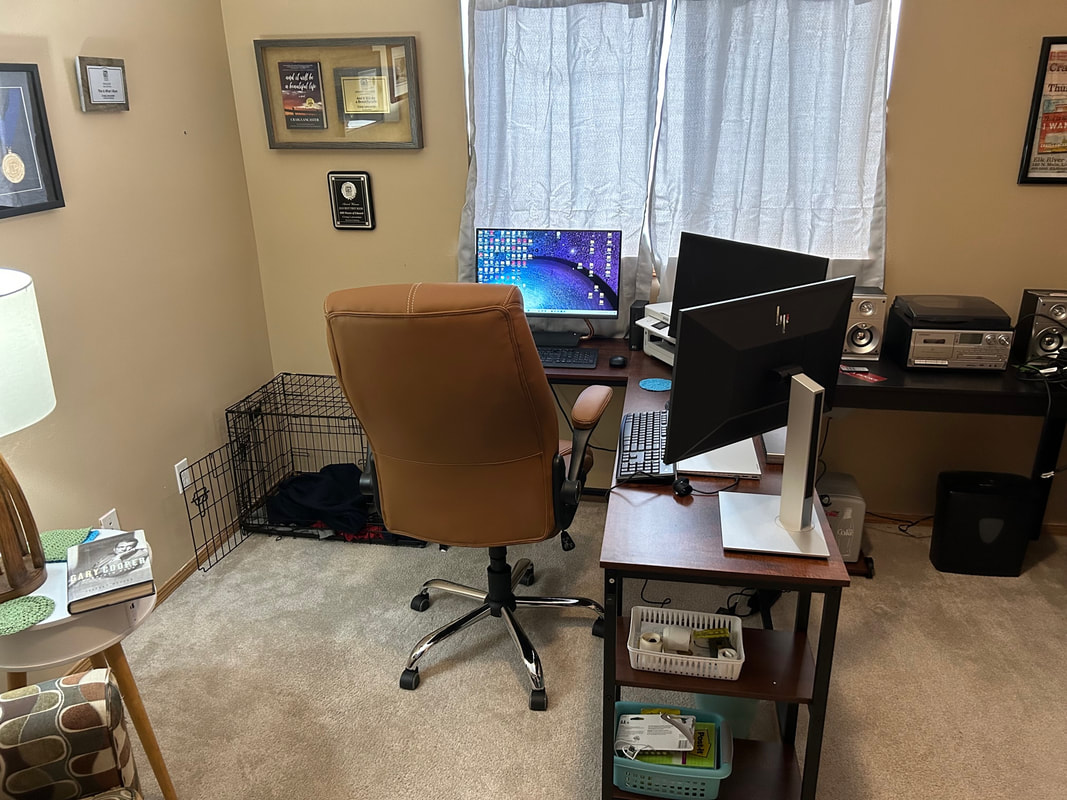 My ready-for-a-new-job office, starting from the left bottom corner: reading nook, Fretless' kennel, writing space on the short side of the L-shaped desk, work station on the long side, stereo set. Out of the frame: book library and vinyl library. There's a drink fridge there under the left speaker. A comfortable office is an efficient office. I started working in a way that supports me when I was 18 years old, which means I've been at it for a long, long time. Most of that work has tied into a life of letters: I was a newspaper reporter before I was an editor, then I was a newspaper editor and a novelist, then I was a novelist and a freelance editor/graphic designer, then I was a novelist, freelance editor/graphic designer and pipeline inspection specialist (the latter being the wild card in my working life), then I was a digital journalist, a novelist, a freelance editor/graphic designer and a pipeline inspection specialist, then I dropped that last bit through no choice of my own.
As of today, I am an analyst/content specialist with a data research group that advises financial services on how to evolve digitally. And a novelist. And a freelance editor/graphic designer (although I'll be much choosier about my projects now). This new job, which I'm entirely stoked to begin, came about in a way that's reminiscent of how I've always found the most sustaining work I've done: a connection, an unforeseen opportunity, a perhaps surprising love of the work, and away we go. I've gotten to know folks at my new job over a series of years, working with them on a freelance basis first and now as a full-timer. Job changes, by their nature, can be stressful and uncertain. The way this came together mitigates some of that. I feel fortunate. And I'm just entirely grateful to have the opportunity, at this juncture of my life, to plant myself in something new and learn new skills while also applying the old ones in new ways. In the broad view, what I've always done is tell stories (pipelining, perhaps, notwithstanding, although have you met Max Wendt?). Here I go again. 10/12/2022 0 Comments The Past's PresenceEven though it's been a lively few weeks, Elisa and I have been feeling the pull of something peaceful. We scuttled our anniversary plans at the beginning of the month because Spatz the Cat was ailing, then a calendar filled with wonderful things—the High Plains Book Awards for me, a new novel launch for her—conspired against just-the-two-of-us time. Today, we grabbed a little of that, heading off on a day trip to one of our favorite places anywhere, Chief Plenty Coups State Park. There, less than an hour's drive from Billings, is a place both sacred and accessible to all, a preservation of the great chief's words and artifacts and vision. Every time we go, we take a lunch, then we visit the museum, then we take the long, looping walk around his home and his orchard, basking in the quiet and the peacefulness. A visit truly is a salve. On the drive back home to Billings, just outside the town of Pryor, I stopped for one more picture. You can't see much; the gate at the property was closed and locked, and my little iPhone camera couldn't do much with the scene.
Out there, though, is a house that once belonged to a rancher named Herman Hamilton, who is long dead and even longer not the owner of the spread. And somewhere on that patch of land where the house sits once sat a tiny little trailer home, way back in the early 1960s. It was there that my mother and father lived for a short while as Dad helped Herman tend to his ranch. The time that they lived there far predates me. They've been divorced for nearly 50 years—almost the entirety of my life—and probably haven't been in each other's presence more than a dozen times in all those years. When I'm with them in the same room, it's less a case of the gang is back together and more a case of my looking at them and wondering, "How the hell did this pairing ever happen?" (Answer: Youth and beauty and mutual desire. Move on, Craig.) Anyway, this isn't about that, not so very much. It's not even about this place that sits mere miles from somewhere Elisa and I regularly go. No, this is about the adage that gets fixed to Montana sometimes when it's described as one small town with really long streets. Herman Hamilton, you see, not only was my dad's long-ago employer but also was my best friend Bob's great uncle. Bob, whom I've known only since 2013 or so. Bob, who became friends with my dad because they both owned condominiums in the same development and were chatting one day and Dad mentions Herman Hamilton and Bob says, "Holy crap ..." The world really does shrink sometimes. (Herman was also a bank robber of some repute in the 1930s, but I suppose that's another story for another time.) 10/9/2022 0 Comments A Boy and His Town
And It Will Be a Beautiful Life, the novel that came out last year, won the 2022 High Plains Book Award for fiction last night. It's an honor that has left me gobsmacked and very, very proud, but this is only tangentially about that.
Here's the tangent: As part of the High Plains Book Awards festivities, finalists in the 12 categories were offered two nights at a Billings hotel. When that offer was extended a few months ago, Elisa and I looked at it and said "hey, much-needed staycation." By the time the dates rolled around, our cat had reached a point where she needed more hour-to-hour attention (she's fine, really, much better than we thought she'd be a couple of weeks ago), so Elisa and I spent time together during the days, then split at night. She came home, and I took the hotel room. "Staycation" became "mecation." It happens.
The hotel was close to a neighborhood in Billings where I once lived, in a different stage of my lifetime. Both mornings, I got up and took a long walk through North Elevation, a downtown-adjacent enclave of historic homes and wide streets and mature trees. It was less nostalgia—although there's nothing wrong with that—and more pure peace and beauty. Billings' signature park is there. A damn fine coffeeshop is, too. I had every reason to go and no reason not to. At the end of the first day's walk, I posted a Barenaked Ladies video on Facebook, along with this: "How it feels whenever I come to the North Elevation neighborhood ..."
I'm going to say now that I didn't quite capture the sentiment. "This is where we used to live" applies in a limited way, but the factors that make it past tense are more nuanced. The person with whom I lived there lives there still, from all appearances much more happily, and when you care about someone—as I do, still—you want only happiness for them. There's not a thing in those many blocks that is a heartbreak now, not even the memories of the pets I've loved who have crossed over. It's all good. Better than that, it's all beautiful.
Plus, I still live here. Not there, but here. The distance between the two is only a few miles and a good chunk of a lifetime.
When I heard the name of my book called out Saturday night, this is exactly what I thought of first: I'm home.
Not on a stage. Not standing next to two writers I consider wonderful friends. Billings, where I live. I said as much in my acceptance speech (if you can call it that; I was entirely unprepared, having not allowed myself to think my book might win): After nearly two years away in Maine, I came home to Billings in April 2020. I didn't know for how long. I still don't, as far as that goes. But this is where I used to live, and it's where I now live, and it's as home to me—all-the-way-in-my-bones home—as any place has ever been or is ever likely to be. That's what I thought of on those walks through an old neighborhood. That's what I thought of on that stage. That's what I'm thinking of now. And you know how it is when you're home: You know where you are. When we headed out for Maine in 2018, I described the leaving this way in an interview with Ed Kemmick and the late, lamented Last Best News: "There’s going to be that moment when I have to come to grips with the fact that I’m leaving the most important home that I’ve ever had and going somewhere else." So it did. But the leaving didn't take. I came back. 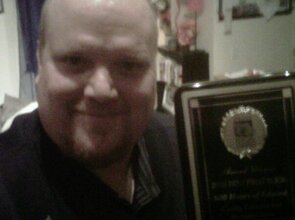 With the High Plains Book Award for best first book on October 8, 2010. With the High Plains Book Award for best first book on October 8, 2010.
The other thing I couldn't help thinking about Saturday night was a similar time, 12 years earlier to the day, when I was a much younger, much more ignorant man. In 2010, just months after my first novel was released, it won a High Plains Book Award. I might have been forgiven at that moment for thinking it would be forever thus: release a book, collect a prize. I might also have been gently prodded to see the bigger picture around me, because I was spectacularly screwing up some pretty basic parts of my life with neglect back in those days. I might have listened, adjusted, flown right.
Then again, I might not have done any of that. Being headstrong is its own affliction, cured by only one thing, if you're lucky enough to survive the medicine. My prescriptions were coming, about the writing life and about life, delivered in amazing highs and crushing lows, all the pain and pleasure I could ever want. Need another song? Try this one:
The joy is not the same without the pain.
My mistakes are here in Billings. My regrets. My glories. My aspirations. The erstwhile friendships I hope I can repair. Still others I wouldn't even attempt to, mirages that they are. What's behind me and what's ahead of me, all of it ready to be examined and experienced. Most of all, the one I love, who has her own definitions of home, who is striving to be of it and in it. Together, we will honor those answers and those places, be they physical or emotional or both. So, before I go off on a burst of happiness, I should do this: In the interest of consistency and intellectual rigor, I must adhere to my basic sense that happiness, as an emotional state of being, is highly overrated. It's too reliant on current circumstance to be trustworthy, and the factors that spur it—good news, fortuitous coincidences, pure serendipity, and the like—are too transient to be relied upon. My aim in saying this isn't to knock happiness—if you have it, brother or sister, be thankful for it and keep it as long as you're able—so much as it is to cast a vote for its more durable cousin, fulfillment. If you're fulfilled in where you are, whom you're with, what you're doing, where you're headed, you have something to hold tight to when the transience of happiness is with you and when it's against you. That's my theory, anyway. That said, I'm pretty (burbly-happy curse word) happy these days. Let me count the reasons ... 1. One night in Big SkyI'm just back from Big Sky, about three hours from where I live. The board of the Big Sky Community Library chose And It Will Be a Beautiful Life as the community read (One Book Big Sky) for the fall. Tuesday night was sort of the capstone of the event. I drove out, had a wonderful chat with folks who read the book, spent the night, and came home. It was a soul restorer in all the best ways. When writers and writers gather, it can be a lovely thing (see below), but it can also be a release of the pent-up frustration that only writers know and thus are in position to help each other through. When readers and writers gather, it's straight-up love. How lucky was I to spend an evening with a bunch of people who read my book, read it closely, had such interesting things to say about it, and wanted to come talk with me? The luckiest. No doubt about it. I rode those good feelings all the way home. The drive from Big Sky to Bozeman is one of the most visually arresting things you can see anywhere in these United States, so there's that, and believe me, I drank it in (figuratively). I made stops at libraries in Bozeman, Livingston, Big Timber, and Columbus, planting seeds for more days and nights like the one I'd just enjoyed. Here's hoping. 2. The blessings of good friends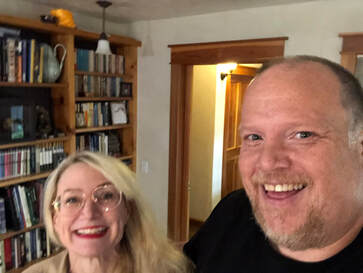 With AMERICAN ZION author Betsy Gaines Quammen. With AMERICAN ZION author Betsy Gaines Quammen. I think I'm only just now getting my considerable arms around how emotionally bereft the pandemic has left me (and so many other people, judging from what I'm reading and what I'm hearing). Honestly, I thought being chased inside and away from gatherings was a small blessing amid a horrible event, but it wasn't that at all. Now that I can see and meet the people I want to see and meet—while still being careful, of course—I'm realizing how much I craved it. Just in these past few weeks, I've gotten to hang in Butte, Missoula (thank you, Gwen Florio and Malcolm Brooks), Livingston (thank you, Amy Zanoni and Maggie Anderson), Bozeman (thank you, Betsy Gaines Quammen and Kryssa Marie Bowman), and Big Sky. I've had the fellowship of brilliant writers and thinkers, genuinely good people, and people who lovingly tend to the cultural life writ large. Man. I've needed that so much. So much. Happy? Yeah, I'm happy. But grateful most of all. 3. The work is going well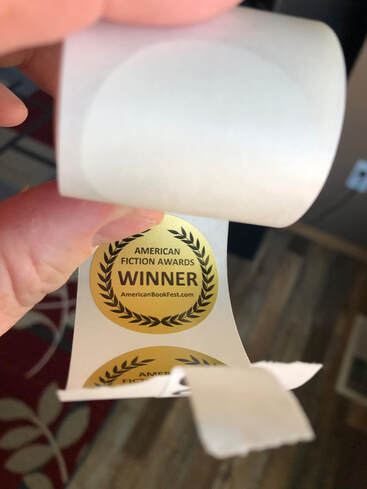 Winning an American Fiction Award was a lovely bit of news to receive. Winning an American Fiction Award was a lovely bit of news to receive. OK, look, here's where I keep it honest: If my publisher had said, sorry, kid, but your manuscript stinks and I'd received a lot of hate mail and my dog was snubbing me, would I be Mr. Happy? I would not. This, of course, underscores my point about fulfillment vs. happiness. I work to a standard I set so I can know I've done my best regardless of what a gatekeeper says (or, at least, so I'll have the gumption to try again if I find the door closed). I try to approach the world with an open heart because I believe that's how we get past at least some of our divisions. I engage with my dog so he knows I'm his, and he's mine. That's fulfillment. The happiness of it comes and goes. But I can't deny that I'm really, really enjoying every side of the work right now: The creation of it, when it's just me and an idea and the challenge of getting from here to there. The production of it, where I interact with the publisher I wanted to be with and who wants my work on his list. The carrying it to readers and interacting with them, which can be such an incredible validation of the work put in. The awards, both realized and potential (talk about transience). I'm as energized for all of it, the whole arc, as I've ever been. In Missoula, while waiting to eat lunch, I happened upon a meeting with a well-regarded poet and fiction writer and a genuinely good human. I don't know him well, but I like him, and even so, in the worst of my do-I-want-this-anymore crisis a few years ago, I deleted him (and a whole lot of other writers) from my social contacts, in a clumsy, flailing attempt at ridding myself of reminders of an endeavor I wasn't sure I wanted anymore. So there I was in Missoula, nonexistent hat in hand, apologizing for something I'm sure he didn't even notice, telling him I was in a dark place. He was kind and compassionate, as I expected he would be. I still appreciate the grace. I hope, the next time I'm on the other side of that conversation, I extend it to someone who needs it. I'd like to think I've learned something. Certainly, I appreciate that the want-to came back to me, and I'm going to nurture it as much as I can. But what happens when rejection arrives (as it surely will), or awards don't (ditto)? I don't know. I'll try to remember now and then and remind myself that I can be in both places. Just not at the same time. 3b. That was a lot. Here's an anecdote.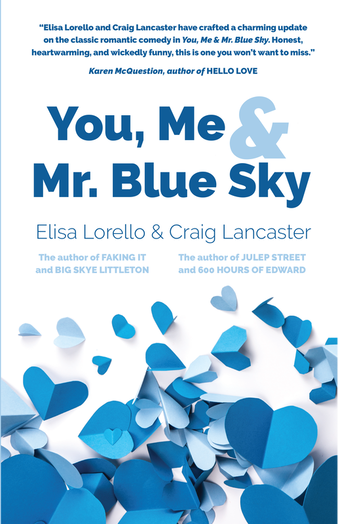 So I'm driving home from Big Sky and I'm talking on the phone—hands-free—with Elisa and I'm saying much of what I said above, only differently, and I'm telling her how energized I am, and I'm hearing how energized she is, and we come around to You, Me & Mr. Blue Sky. It's the novel—a romantic comedy that goes deeper, as Elisa's work does—she and I wrote together in 2018 and 2019. We released it ourselves ... and pretty much let it flop around out there. Our crises of confidence coincided. Those were hard, broken days. We had no energy for much of anything, and certainly not for getting out and trying to introduce a book to the world. We were too adrift in our personal lives to have the fire for the professional. Frankly, there were times I wasn't sure we'd make it. But we did, and we have, and we're going to. Elisa is back, too, and she said, you know what, we should put a new jacket on that old novel we never really got behind. Freshen it up. It's a story of brightness and hope, and it has this dreary cover that doesn't fit it. Let's give it some love. OK, she didn't say that exactly, but that was the gist. And here it is, dressed to meet the readers we hoped it would meet. 4. Health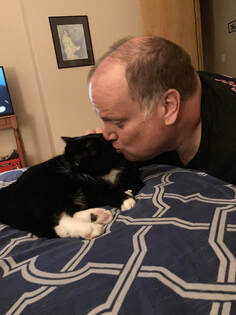 Elisa didn't join me in Big Sky because our cat, Spatz, has been ailing. The most recent health issue was one that had a small sliver of hope for resolution and a rather wide, grim likelihood in terms of what we'd have to do. I had an appointment I had to keep, and Elisa decided to stay behind and tend to our girl. And our girl, not for the first time, has proved resilient. Her issue has resolved itself—or, at the very least, has recessed into a place where she's her old self again for however long that lasts. She was a surprise when she came into our lives, and we've resolved to enjoy her for as long as we have her. That horizon, delightfully, has widened. We're thrilled. As Elisa is given to saying, she's our Rushmore, Max. 1/5/2022 2 Comments Done ... And Barely StartedHello, 2022 ... and all of you here to see it. It's been a trip, huh? Just before Christmas, in a final furious week of drafting, I finished the first pass at a new novel, which I'm calling Dreaming Northward. It is, as I expected given the brisk pace of my finishing kick, both a fully satisfying arc and a manuscript that needs a lot (A LOT) of work. That's how these things go, at least for me. I write them to see I can get from here to there, then I spend a lot of time cogitating on what I've done, then I rewrite to more fully expose the story I think I'm trying to tell, then I revise, revise, revise to really hone whatever it is that I have. (Followed, of course, by even more editing if—knock wood—the thing gets published, followed then by a beautiful, finished book that I immediately wish I could have another crack at.) Anyway, I hope to share it with you ... sometime. Probably 2023. We'll see. A lot left to do. I mention this because my friend Jeff Deck reminded me of something on Facebook today. Here are Jeff's words, which are much more eloquent than mine: I'm Random Penguin House author Jeff Deck, and I have an important message for you today: Getting published by a major house will not make you rich. It will not pay your mortgage. It will not clear up your skin. It will not get rid of those love handles. It will not make you a bunch of friends, nor will it get you laid. It will not make your distant parent say they're proud of you. It won't relieve you of the onus (and cost) of marketing your book yourself, either. What it will do is get your book into physical bookstores. And potentially improve your chances of getting a second book traditionally published. But mostly it's the distribution thing. Many people fix their eye — and their hopes, and their self-validation — on getting published by a major house. My wish for you is to recognize the value in your work no matter how it ends up being published, whether via the Big Five (Big Four?), a mid-size or small press, or self-publishing. Recognize the value in it BEFORE it's published, too. The work you put into your story is real. The time you spent improving your own skills along the way should be recognized, and celebrated. Goals are important for motivation. But you are "worthy" *right now*. And you will continue to be worthy every step of the way. Writing is a long journey, even (especially) after publication. No matter which publishing route you choose. Belief in your own value — and a daily celebration of your own work and words — will sustain you along the way. Every word is absolutely true, by the way. I often tell folks that they should celebrate having done the work as much as they celebrate anything that flows from that work. Sometimes, they think I'm bullshitting them. I'm not. The work is sustaining. The rest is ... the rest. 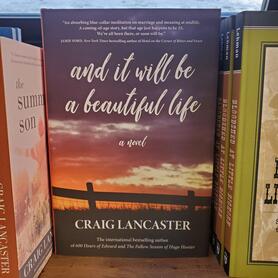 The rest Received some lovely news yesterday. And It Will Be a Beautiful Life was the bestselling book for 2021 at my local independent bookstore, This House of Books. I'm grateful to the bookstore—where I'm a proud member-owner (it's a co-op)—for being such a wonderful supporter of not just my work but of the many, many fine regional writers who are doing such important work here. And I'm grateful to the folks, near and far, who bought a copy from THoB and kept the oxygen flowing to an independent bookstore. The cultural life in my town is much the richer for its presence. If you'd like a signed copy of the book, THoB will be happy to fulfill that desire. Simply order online and mention in the comment field that you'd like it signed, and I'll hop into my trusty blue Toyota, drive downtown and sign it for you. And, hey, if it's a paperback you want, I have good news: The paperback version releases in May, and you can preorder through THoB (I'll be happy to sign those, too, once they come in), through your local independent bookseller (please!) or wherever you get books. |
About CraigCraig Lancaster is an author, an editor, a publication designer, a layabout, a largely frustrated Dallas Mavericks fan, an eater of breakfast, a dreamer of dreams, a husband, a brother, a son, an uncle. And most of all, a man who values a T-shirt. Archives
July 2024
By categoryAll 600 Hours Of Edward And It Will Be A Beautiful Life Awards Books Bookstores Community Connection Craft Craig Reads The Classics Dreaming Northward Education Edward Adrift Family Geography History Libraries Memory Montana NaNoWriMo Northward Dreams People Plays Poetry Public Policy Q&A Social Media Sports Stage Texas The Fallow Season Of Hugo Hunter The Summer Son This Is What I Want Time Travel Work Writers Writing Archives
July 2024
|
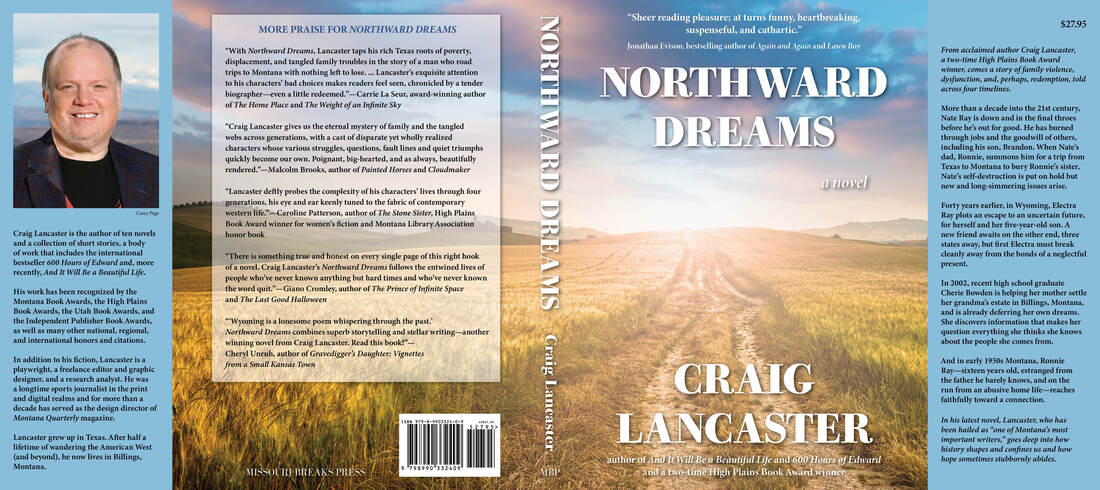
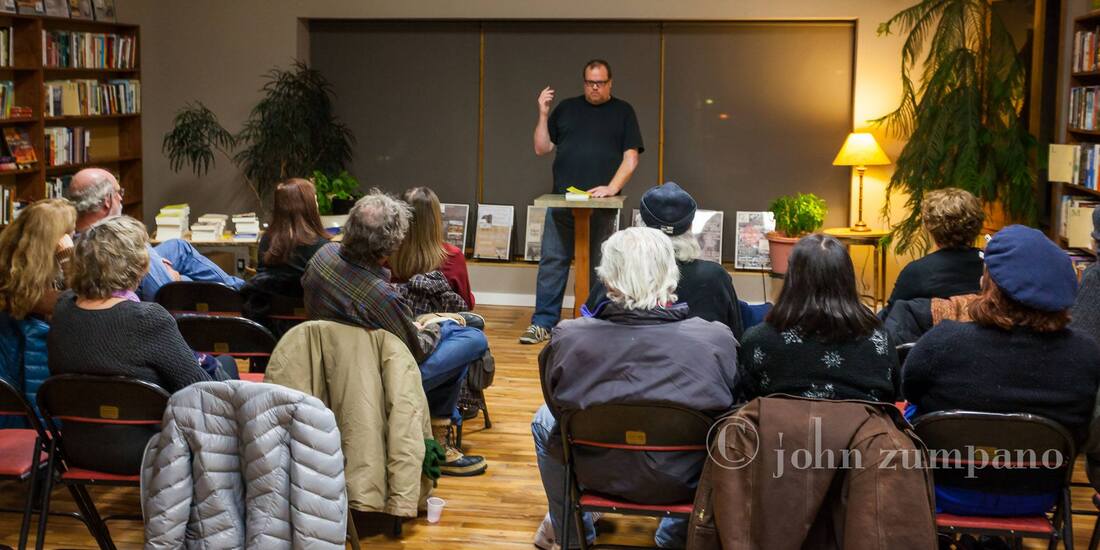
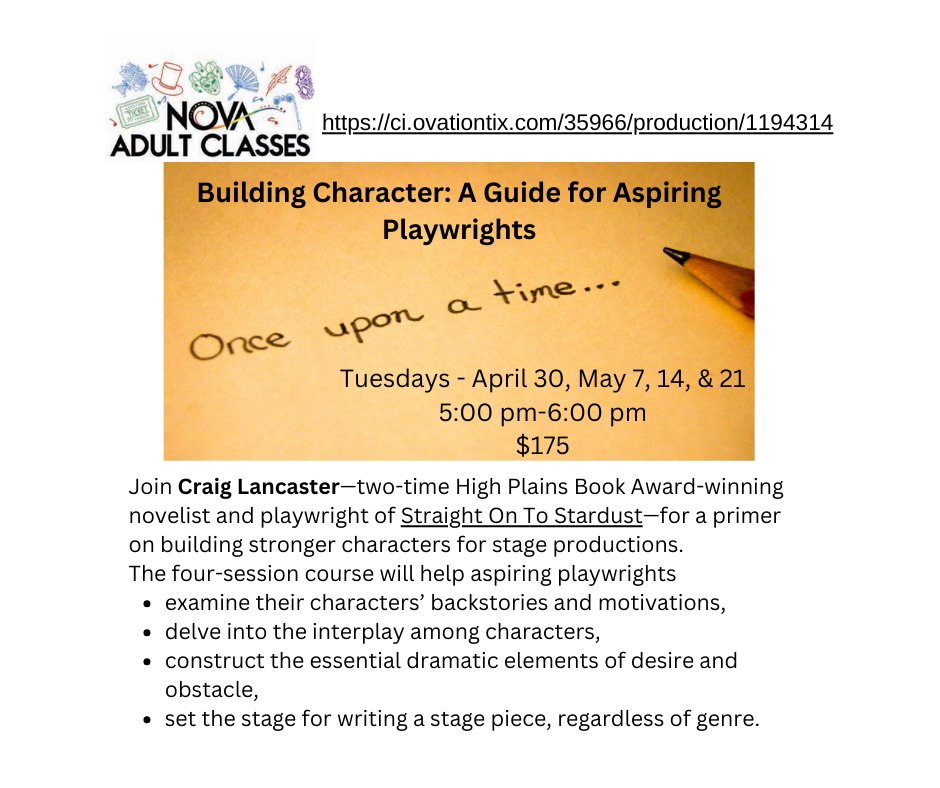
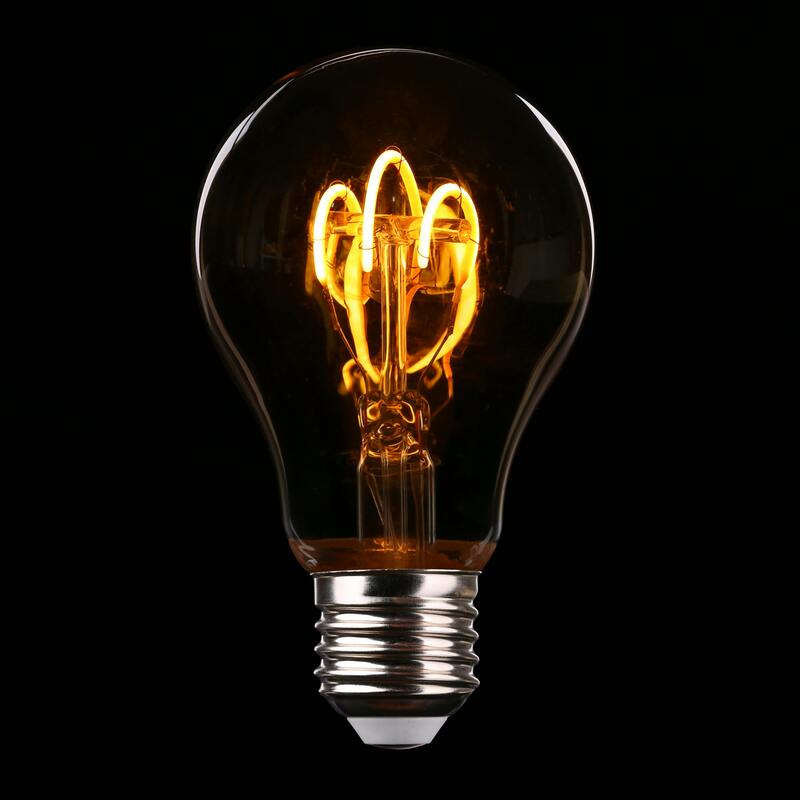
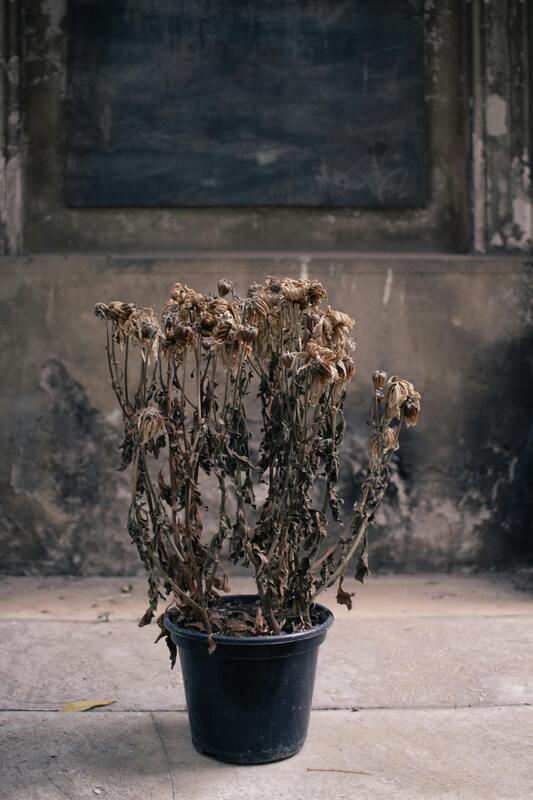
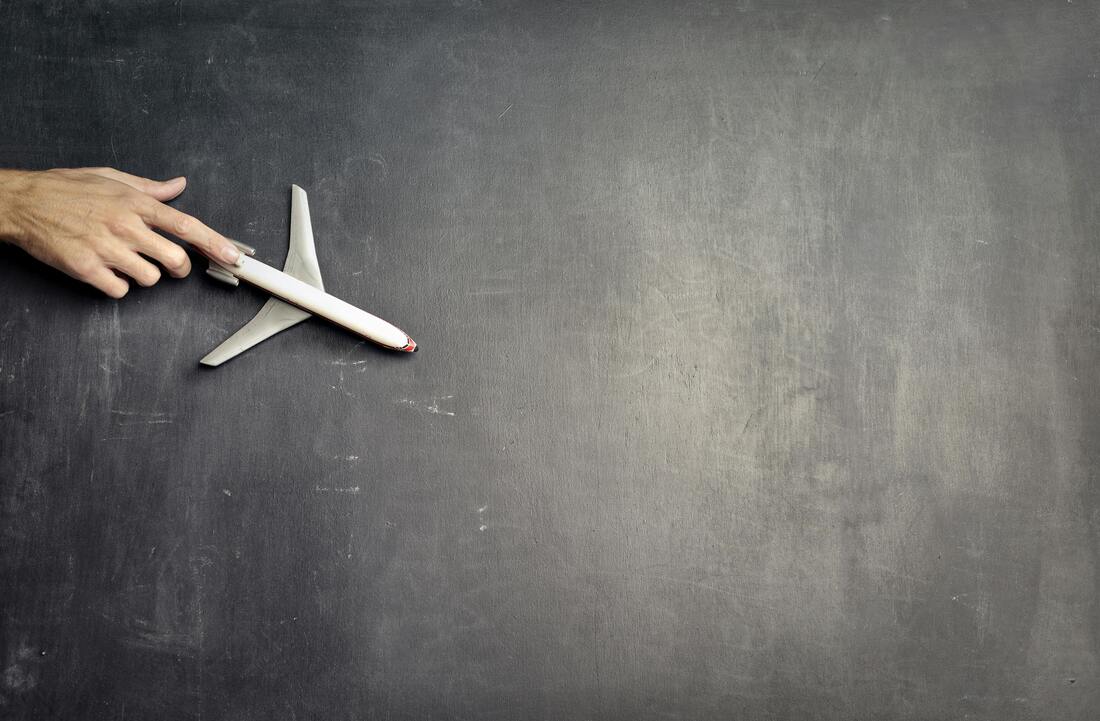

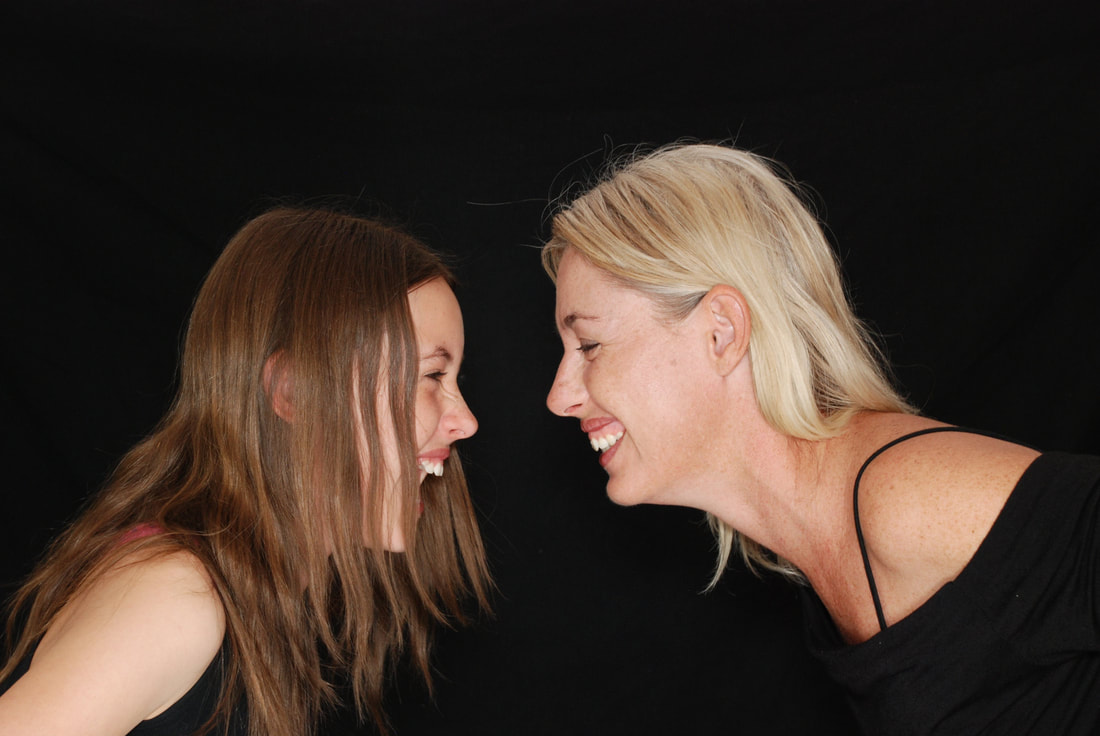
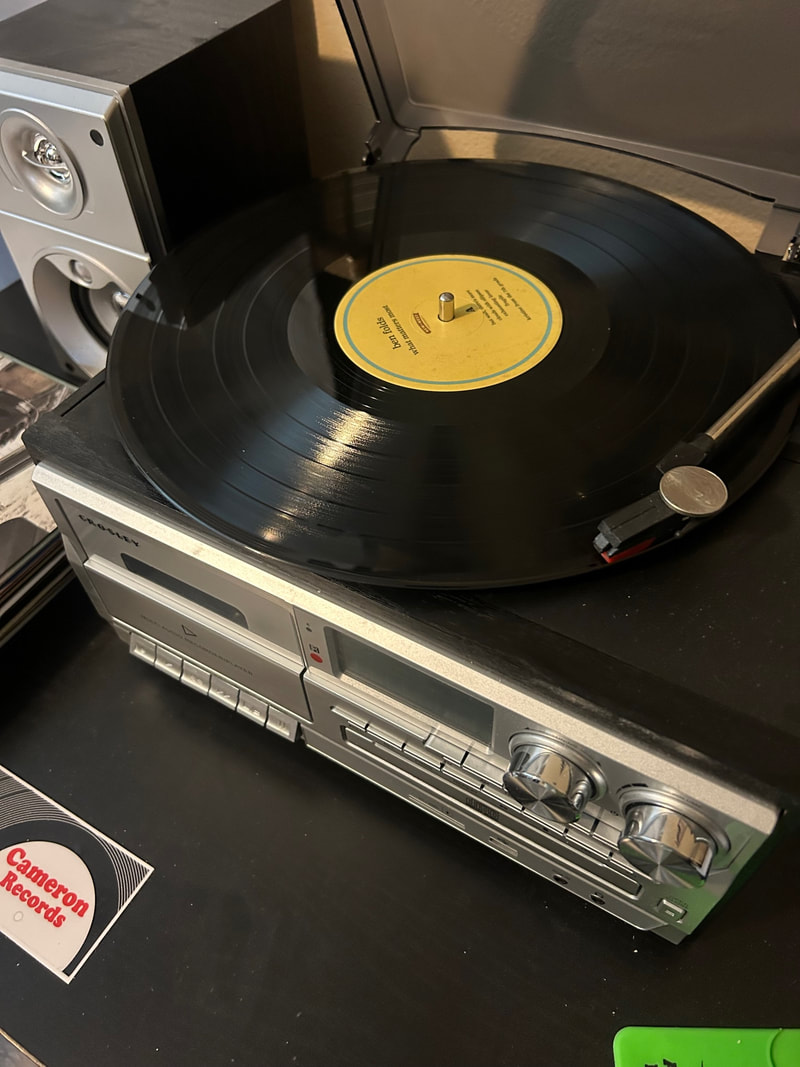
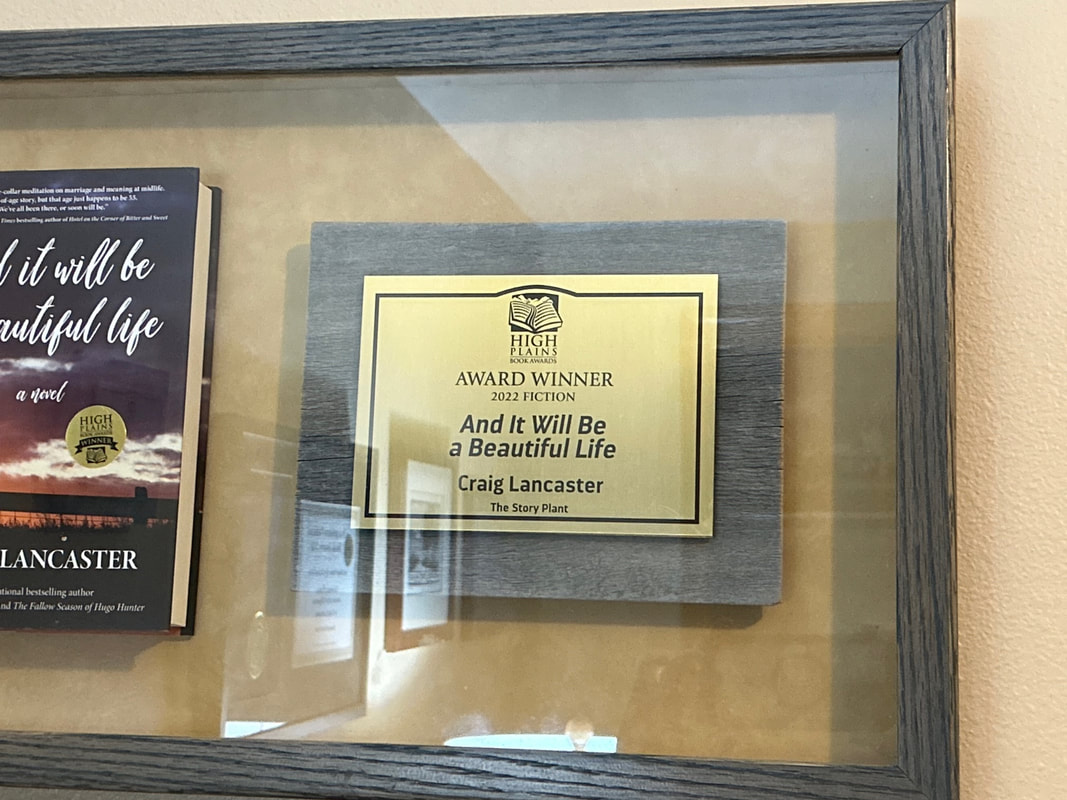
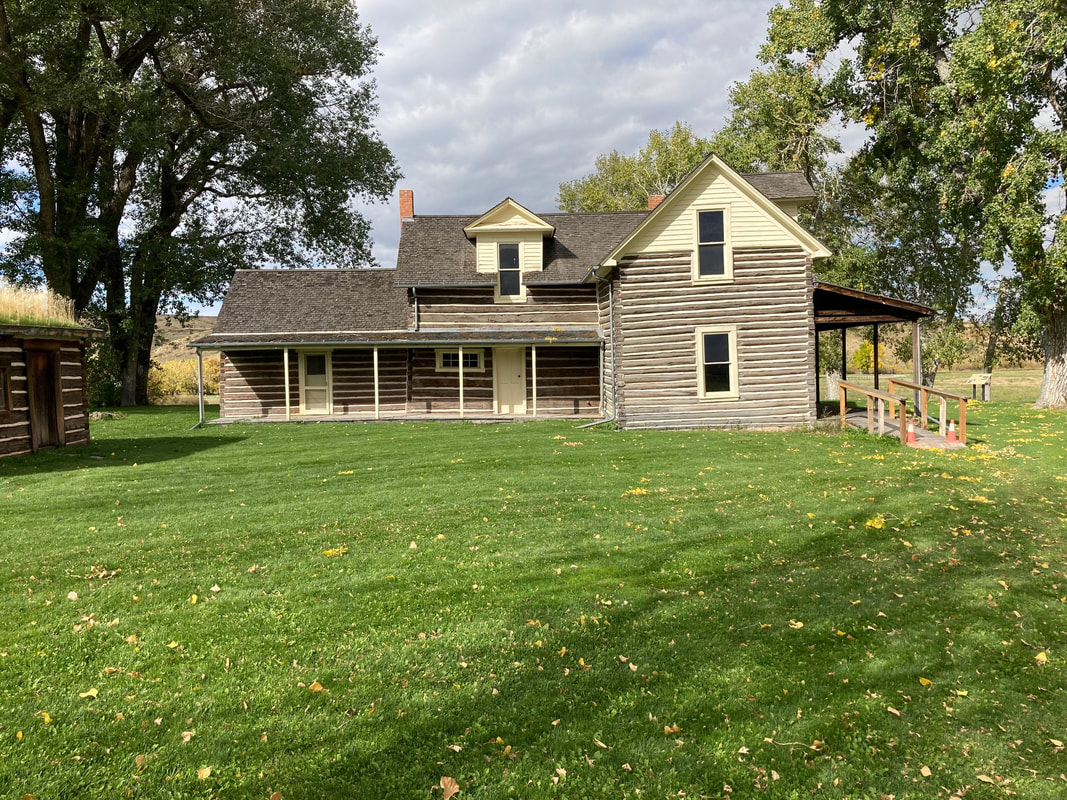
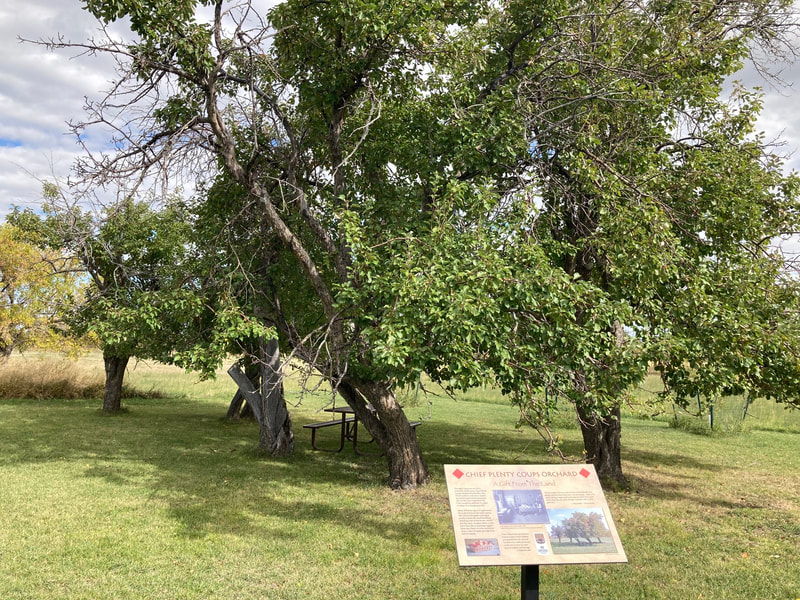
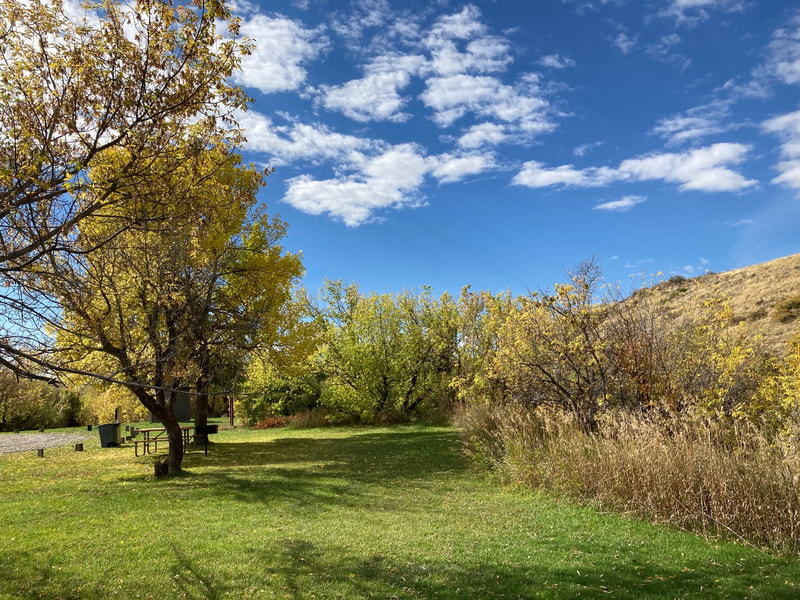
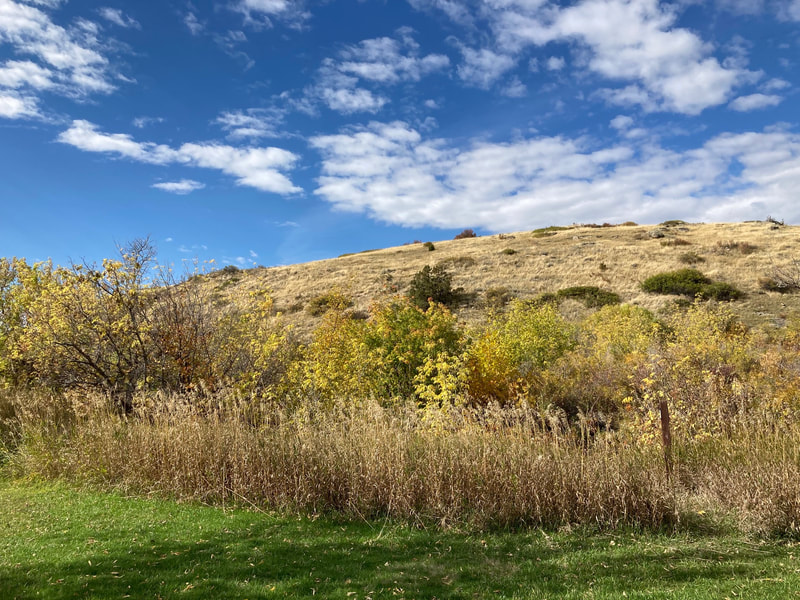
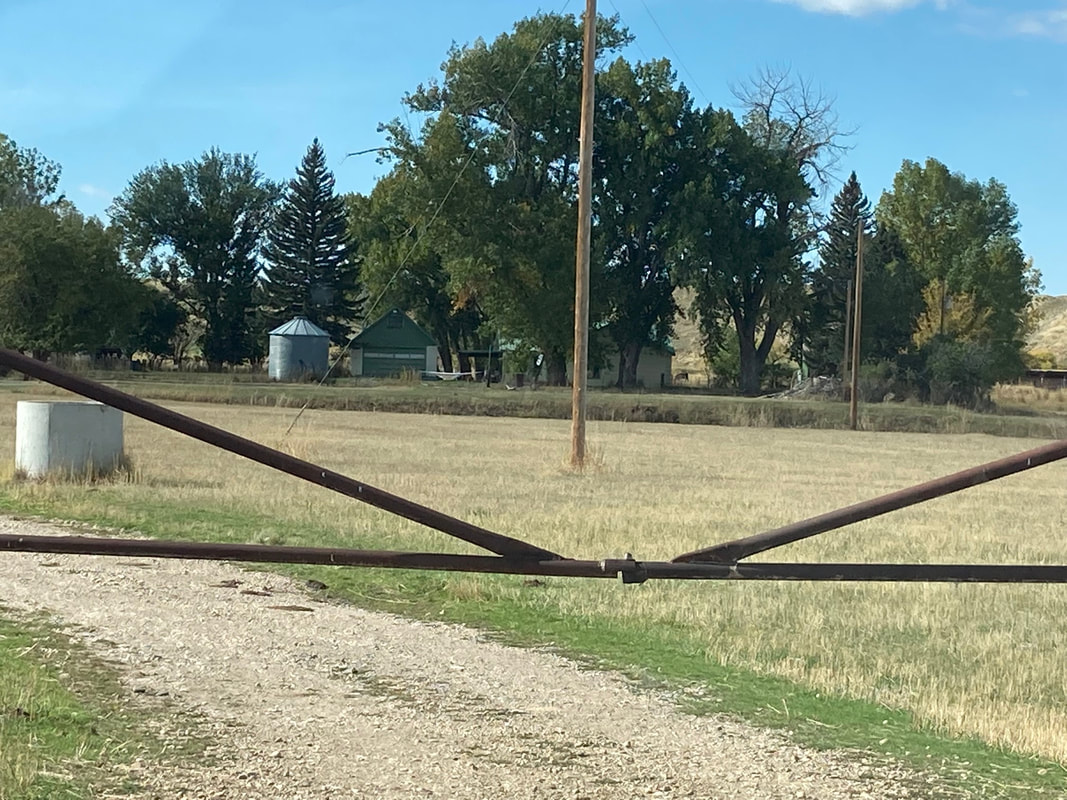
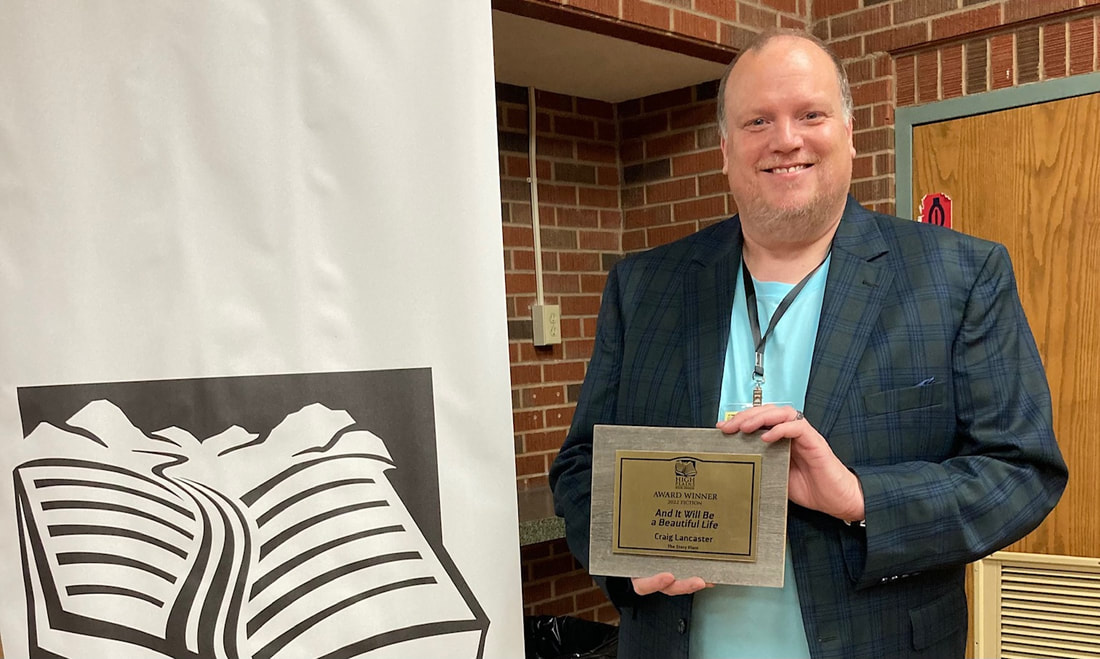
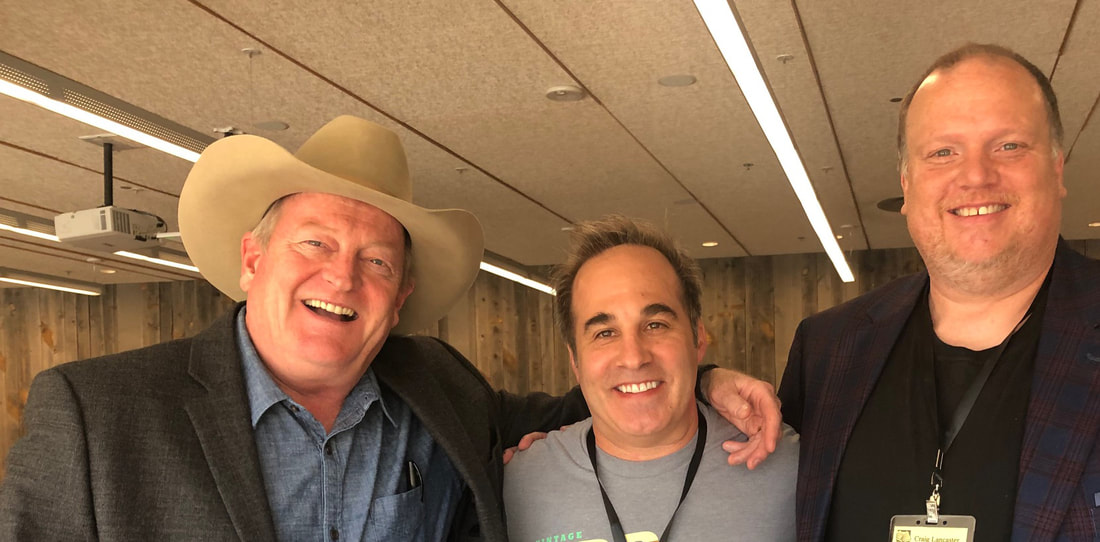
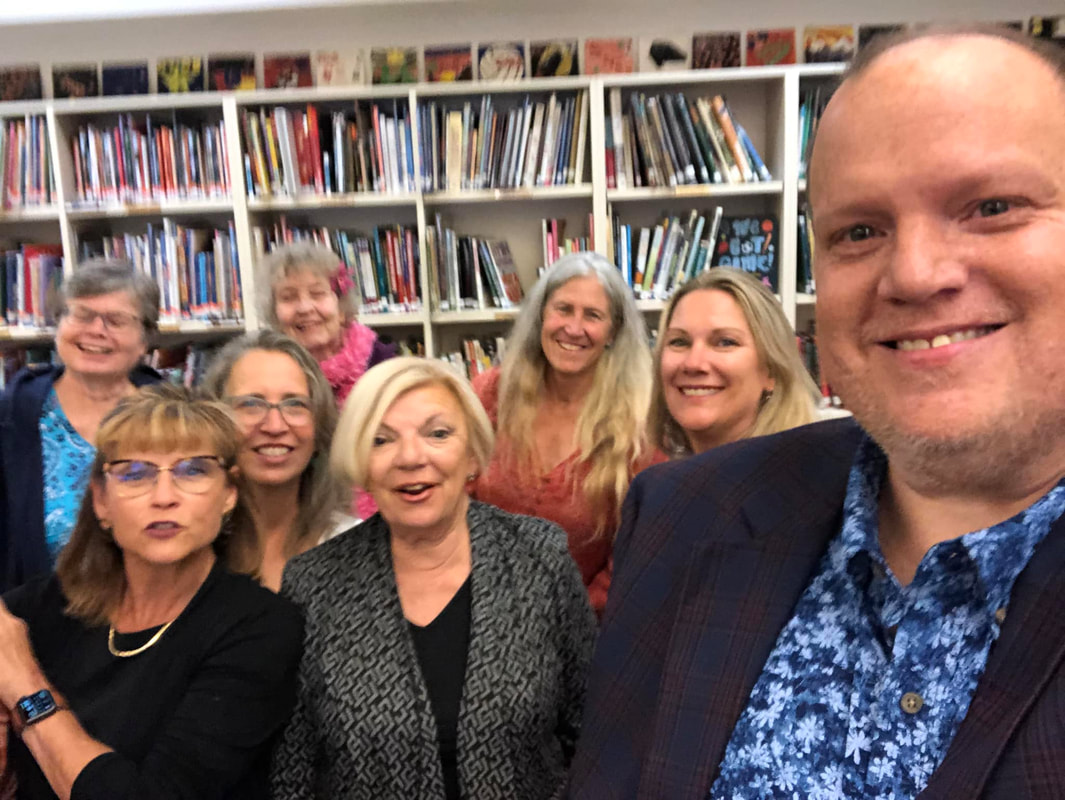
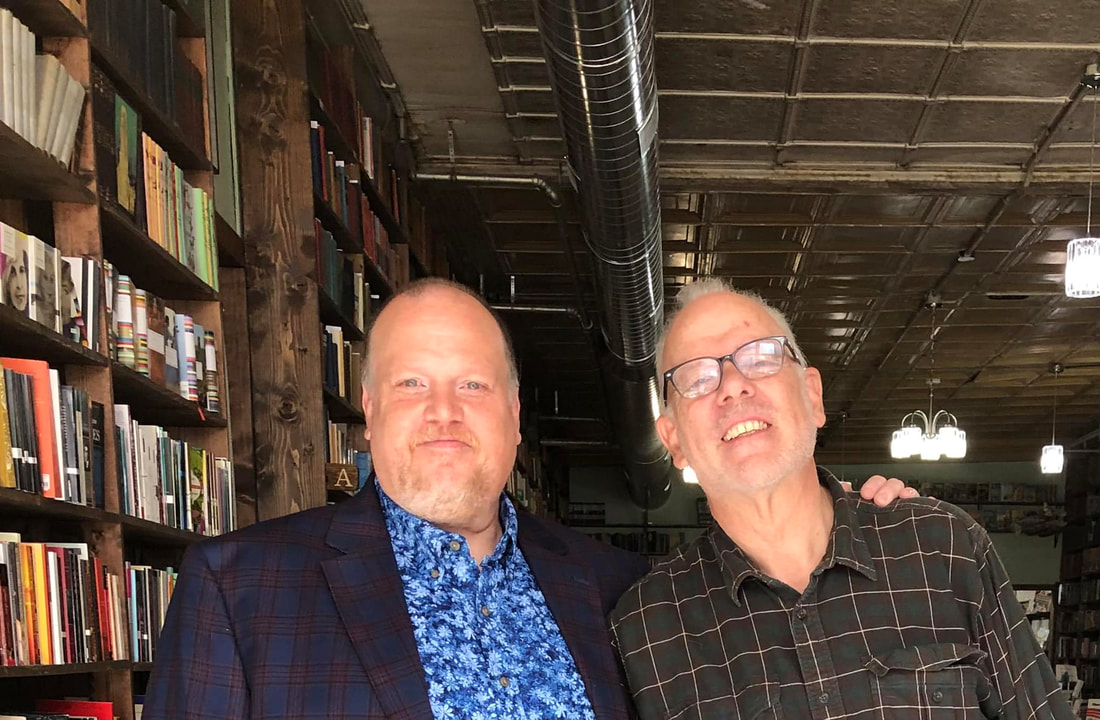
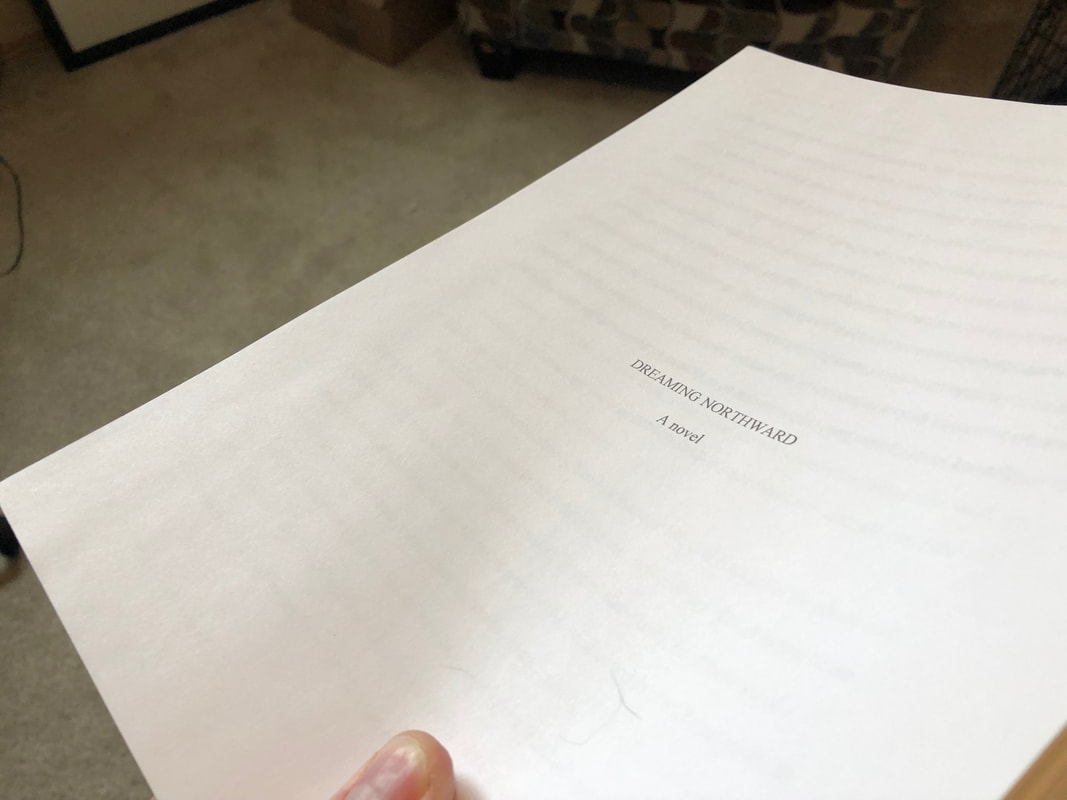
 RSS Feed
RSS Feed